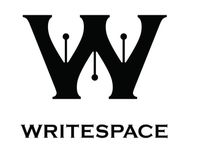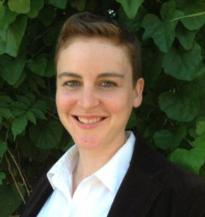INSTRUCTOR: SARA ROLATER
SKU:
$80.00
$80.00
Unavailable
per item
What is a story? What should it accomplish? How do you put one together? What about a narrative arc is satisfying, provides closure, feels finished? In this workshop we will work on answering these questions, and you will construct a story in stages, receiving input and guided exercises along the way. These exercises will be valuable to a writer at any stage, whether you have never tried writing a story or have written many, as we focus on how to develop the kernel of a beginning into what feels like a complete and satisfactory narrative.
Whatever genre you’re working in (all are welcome), your main responsibility as a writer is to make the reader want to know what happens next. When you drop a character into a fictional universe, the possibilities of what can occur seem endless, and we will practice asking the sorts of questions that narrow these possibilities to a conclusion that’s inevitable for your particular character. “For who among us,” the writer Andre Dubus asks, “is not a story every day?” We will work on identifying and distilling the stories all around us by defining the necessary techniques and tools of the trade—including inciting action, point of view, tension, conflict, setting, mood, and, of course, character—and studying them in published excerpts of stories and novels to gain an understanding of how fiction emotionally impacts its readers. This impact occurs at two levels: at that of the sentence by “showing” instead of “telling,” and at that of the overall narrative structure (i.e., plot). We will focus in particular on how to generate the larger picture of plot from the smaller picture of the individual details that pop up in our sentences.
Once we’ve examined these techniques at work, you will practice them in writing exercises designed as “story starters.” We will then share some of our story starters and brainstorm as a group the possibilities for where the story can go from there based on the details you have already included. It’s up to you how much of your story you want to share and develop between sessions. Those who would like group feedback will email out their story starters with time enough for the rest of us to read them before the second session. If we do not have time to critique all the material everyone would like to during our second session, students can email the instructor for further feedback.
INSTRUCTOR: Sara Rolater
DATES: Thursdays, August 6th and 13th, 12:30-3 pm
LEVEL: All levels
CAP: 14
PRICE:
Whatever genre you’re working in (all are welcome), your main responsibility as a writer is to make the reader want to know what happens next. When you drop a character into a fictional universe, the possibilities of what can occur seem endless, and we will practice asking the sorts of questions that narrow these possibilities to a conclusion that’s inevitable for your particular character. “For who among us,” the writer Andre Dubus asks, “is not a story every day?” We will work on identifying and distilling the stories all around us by defining the necessary techniques and tools of the trade—including inciting action, point of view, tension, conflict, setting, mood, and, of course, character—and studying them in published excerpts of stories and novels to gain an understanding of how fiction emotionally impacts its readers. This impact occurs at two levels: at that of the sentence by “showing” instead of “telling,” and at that of the overall narrative structure (i.e., plot). We will focus in particular on how to generate the larger picture of plot from the smaller picture of the individual details that pop up in our sentences.
Once we’ve examined these techniques at work, you will practice them in writing exercises designed as “story starters.” We will then share some of our story starters and brainstorm as a group the possibilities for where the story can go from there based on the details you have already included. It’s up to you how much of your story you want to share and develop between sessions. Those who would like group feedback will email out their story starters with time enough for the rest of us to read them before the second session. If we do not have time to critique all the material everyone would like to during our second session, students can email the instructor for further feedback.
INSTRUCTOR: Sara Rolater
DATES: Thursdays, August 6th and 13th, 12:30-3 pm
LEVEL: All levels
CAP: 14
PRICE:

